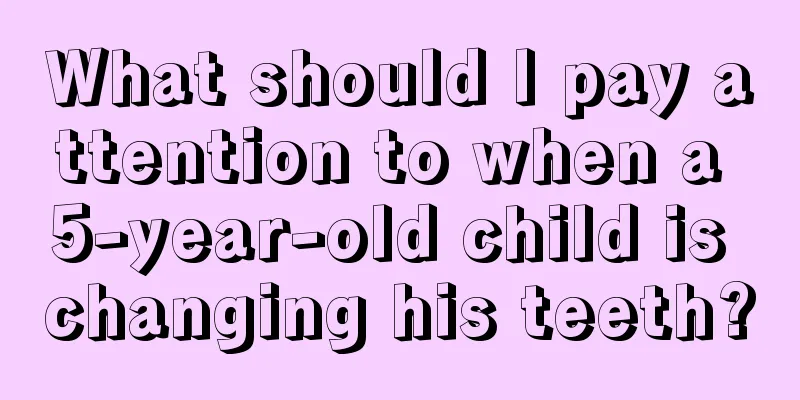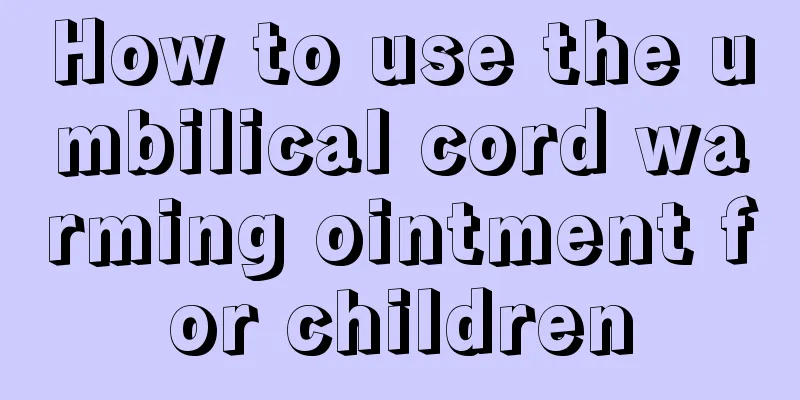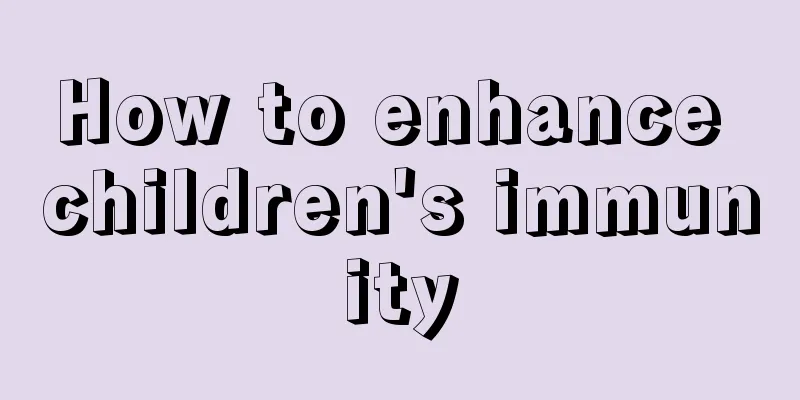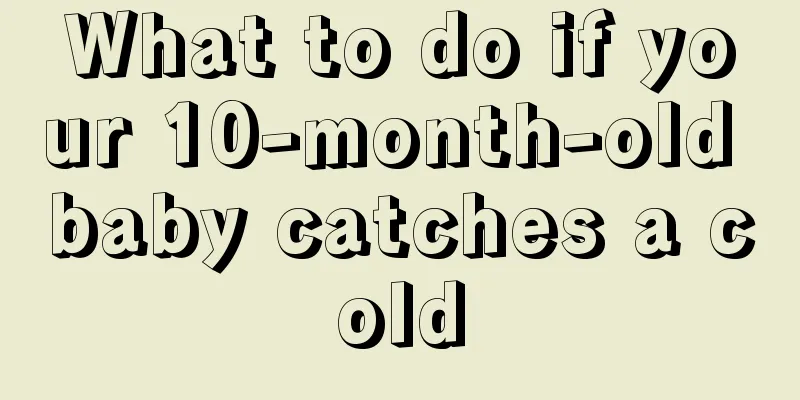What should I pay attention to when a 5-year-old child is changing his teeth?

|
Most children will start to change their teeth when they are around five or six years old. In addition to supplementing children with calcium in a timely manner during the tooth replacement period, special attention should be paid to their daily lives, especially when new teeth do not grow out for a long time or the teeth are not straight, etc., more attention should be paid. Below, the editor will introduce what you should pay attention to when a 5-year-old child is changing his teeth. (1) Why do permanent teeth grow out before the deciduous teeth fall out? The main reason for the loss of deciduous teeth is the absorption of their roots. There are two factors that affect this: one is the chewing exercise, and the other is the pressure on the roots of the deciduous teeth caused by the eruption of the permanent teeth below the deciduous teeth. Today’s diet is softer than before and cannot effectively stimulate the root resorption of deciduous teeth. Therefore, during the period of tooth replacement, you can give your child more harder food. This can not only promote the absorption of the roots of deciduous teeth and make them fall out on their own, but also promote the development of the maxillofacial bones, so that there is enough space to accommodate the permanent teeth that are wider than the deciduous teeth, so as to avoid crowding and dislocation. (2) How many teeth should be replaced? Normally there are 20 deciduous teeth, including one deciduous incisor on the upper and lower left and right sides, one deciduous lateral incisor, one deciduous canine, and two deciduous molars. These 20 teeth are all deciduous teeth that need to be replaced. When a child is around 6 years old, a new tooth will erupt behind the second deciduous molar. This tooth is a permanent tooth that will not be replaced and is called the "sixth year tooth." This tooth is an important positioning tooth, plays a very important role in the normal replacement of the entire permanent dentition, and is the tooth that bears the greatest bite force in the mouth. Parents often tend to ignore these teeth, mistaking them for deciduous teeth. When they have caries, they fail to treat them in time, resulting in the early loss of permanent teeth and lifelong consequences. (3) Why are the permanent teeth yellower than the deciduous teeth, have small serrations on them, and are not smooth? The composition ratio of organic and inorganic substances in deciduous teeth and permanent teeth is different, so permanent teeth look yellower than deciduous teeth. Some children also have dark yellow teeth due to pigmentation deposition on the tooth surface due to not brushing their teeth carefully. This yellowing can be removed by teeth cleaning after the roots of the permanent dentition are basically fully developed. The incisor tip of each newly erupted permanent front tooth is not smooth, but has a serrated developmental notch, which is normal. In the later stage of food chewing, it can be gradually worn into a flat surface. Some children like to eat carbonated drinks and other foods, which cause enamel demineralization and form chalky patches that are easy to fall off. This is already a sign of early caries. Bad eating habits need to be corrected immediately and correct fluoridation treatment should be given. Some small white spots on the tooth surface are caused by enamel hypoplasia. Such spots cannot be peeled off with sharp instruments, do not need to be treated, and do not affect normal use. If a child has lived in an area with high fluoride content in water during the development of permanent teeth, it may develop dental fluorosis. Therefore, when parents are unable to distinguish, they can go to the hospital for examination to avoid delaying treatment. When teeth are changing, special attention should be paid to oral hygiene. Children should be left alone to brush their teeth on time in the morning and evening as much as possible. After eating certain irritating foods, it is best to rinse the mouth in time to minimize the residence time of bacteria and certain food residues in the mouth. You can also supplement more calcium to help the growth of teeth. |
<<: Things to note when your 6-year-old baby changes his teeth
>>: How to take care of children who have stomach pain after eating too much
Recommend
What is the best time for teenagers to go to bed?
Children of each age group should have different ...
Did the boy swallow alkali by mistake?
In daily life, there are such cases every year. M...
What to do if children do not absorb calcium well
Childhood is a critical period of physical develo...
What to do if your newborn baby has eczema
The skin of newborns is relatively delicate, and ...
What is aspiration pneumonia in children
I believe everyone knows the importance of lungs ...
Is there any dietary treatment for children's cough?
Children's cough is a common childhood diseas...
What causes chronic anorexia in children?
Children are a special group of people. If they a...
Will short legs affect the growth of children's height?
The growth stage of a child is particularly impor...
How high is the pillow for a 2-year-old baby?
A pillow of about 3 cm to 5 cm is more suitable f...
What kind of swimming ring should a one-year-old baby use for swimming?
Many mothers will teach their babies to do variou...
Why does the child always bite people?
If a child bites others when he is young, the beh...
Why does the baby's stool smell like rotten eggs and has a lot of farts?
Parents attach great importance to the health of ...
What should I do if my child is allergic to peaches?
How many types of peaches are there that we usual...
What to do if your child has indigestion
Nowadays, we often hear mothers complain that the...
What to do if your child has stomach pain and vomiting
Stomach pain symptoms are very common in life. Wh...









